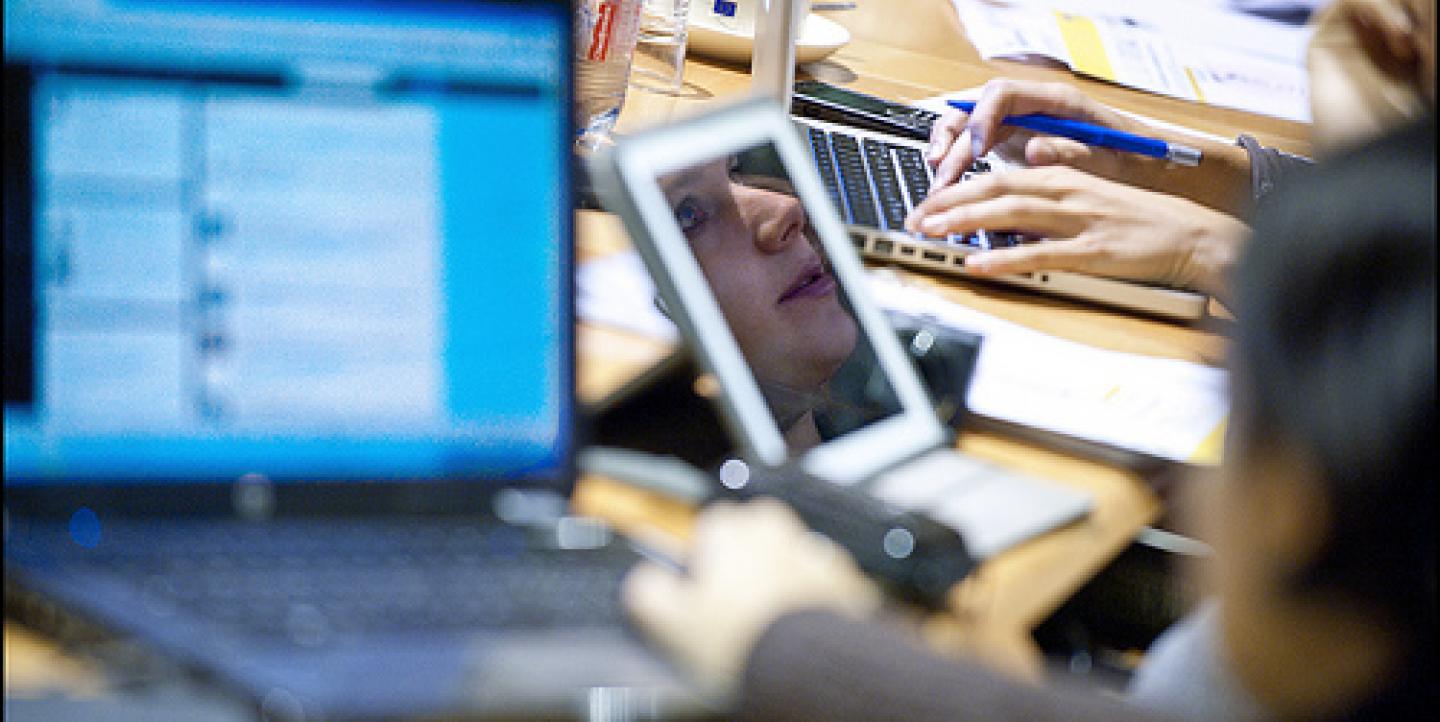What's the most important quality journalists need today? Adaptability. With the field changing faster than ever, journalists need to be in constant learning mode.
That’s why multimedia journalist and trainer Laressa Watlington wanted to help create the Guía de Periodismo en la Era Digital (“Journalism in the Digital Era”), a handbook for Spanish-speaking journalists from the International Center for Journalists. (ICFJ also produces IJNet.)
The goal of the 32-page handbook -- which covers the basics of social media, the state of the Hispanic media in the U.S. and helpful tips for starting your own business, among other topics -- is to give journalists the technical and reporting skills they need to succeed.
Watlington started her career as a journalist in her native Bolivia. She got an early start: at age 16, she volunteered after school on the newscast of a local TV channel. Years later, after moving to the U.S., she worked as an anchor for Univision in Washington and as a reporter at the now-defunct Rocky Mountain News in Denver. She then moved to The Denver Post, where she helped jump-start the award-winning website of Viva Colorado, a publication covering local news geared toward the Hispanic community.
Watlington talked with IJNet about the challenges facing Hispanic media in the U.S. and what skills journalists need in order to thrive.
IJNet: What do you think is the state of Hispanic media in the U.S.? What challenges do Hispanic journalists face?
Laressa Watlington: The digital aspect is there, they are trying really hard to create a community in the digital space, but it’s very, very hard for them. There are a lot of challenges they are facing. A lot of them are asking the question: “Should we go bilingual? Should we just keep Spanish, or should we do English?...
Viva Colorado started as a Spanish paper only, and now is a bilingual paper…and the site is completely bilingual. In some cases [bilingual products] work really well and in some cases they don’t. It depends on your community…
The big networks and the smaller papers are trying to figure out how we make this new digital era work for us. I think we are getting there. That’s why it’s so important [for] young Hispanic journalists to have the tools to become great journalists in the digital era.
IJNet: What are the main characteristics or skills a digital journalist should have today?
LW: Adaptability is number one.... You have to be adaptable because nowadays, a journalist may work in a network or newspaper for about three or four years and then change jobs. [During] my time [with] Viva Colorado, I’ve been a reporter, I’ve been an editor, I’ve been a photographer, an online editor and a social media director. I’ve had five different jobs within one organization.
Being knowledgeable about the basics of journalism [is also important]. Sometimes when I talk to students, it amazes me that they never had an editor in their careers. Or they never had someone that polished their work… And also, [a skill that is unique] to bilingual journalists is to know how to translate. I cannot tell you how many times I’ve seen a bad translation.
And the third thing is learning technology. You cannot be afraid of technology. We are not at a point where you have a choice anymore.
IJNet: What can we find in the manual? Why is it important?
LW: When I came up with the concept I said: “What is that people are going to need that is practical?”…. I didn’t want to write something that was just philosophical. I wanted to make sure this guide was something people would carry in their backpacks and say: “Ok, I have no idea how to do video, but let me read this chapter, and I’m sure I’m going to be able to do that.”
IJNet: What advice would you give to an aspiring journalist?
LW: Have passion. Because really, what it boils down to is to have passion for what you do.
The handbook, part of the Líderes Digitales (Digital Leaders) training offered by ICFJ, is available for download for free here.
Maite Fernández is IJNet’s managing editor. She is bilingual in English and Spanish and has an M.J. in multimedia journalism from the University of Maryland.
_Image: CC-Licensed, thanks to the European Parliament in Flickr._

